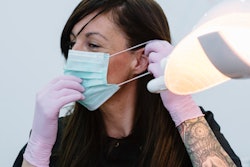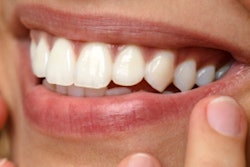
Many potential patients, especially those seeking options in esthetic dentistry, are turning to social media to acquire information before selecting a dental practice and choosing their provider. But is using a social media influencer to market your practice ethical? An article published on August 28 in the Journal of the American Dental Association discusses the ethical considerations of this business arrangement.
Social media influencers are people with a large following on their social media accounts who leverage their content to influence or persuade their followers to buy certain products or services. They create an impact for a brand through interactions and posts, usually on a specific topic, and their impact is typically measured by how connected they are (e.g., their number of followers) and how visible their posts are.
"Although the use of a social media influencer in marketing your practice may or may not include a 'review' of services, being aware that patients are making choices on the basis of what they see on social media, you are obligated to adhere to principles of ethics and standards of professionalism," wrote the article's authors, Drs. Kathleen Nichols and Renee Pappas of the ADA Council on Ethics, Bylaws and Judicial Affairs.
Although internet searching may be efficient in finding information, the information may alter a patient's expectations and directly affect their autonomy in making decisions about their treatment. It is crucial that the information that is posted be accurate and factual, the authors noted.
The JADA article described two potential ethical dilemmas of using influencers: compensation to the influencer and the type of content shared.
If the influencer is only sharing information about hours and services offered, this likely does not present any ethical problems. However, if an influencer is sharing "reviews" of services or products and promoting procedures, this may be more problematic.
The California Dental Association Code of Ethics, for example, says that "a dentist who compensates or gives anything of value to a representative of the press, radio, television, or other communication medium in anticipation of, or in return for, professional publicity must make known the fact of such compensation in such publicity." Further, the preamble of the ADA Principles of Ethics and Code of Professional Conduct states that the benefit of the patient should be a dentist's primary goal.
Applying this concept, dentists must ensure that the patient's best interests are the primary focus of all decisions. For example, patients would benefit from promotions of dental health-related topics, like the frequency of visiting the dentist.
"All marketing efforts, including any posting from social media influencers, should reflect honesty, compassion, kindness, integrity, fairness, and charity," wrote the authors.
Section 1 of the ADA Code of Ethics, titled Principle: Patient Autonomy, requires that patients are involved in their treatment decisions. Therefore, when promoting procedures or products, it must be clear that each case is unique, and specific criteria must individually be evaluated to aid in the decision-making process, according to the authors.
If a patient's photograph is used in which the patient may be identified, patients must provide their informed consent to have their photo used. Otherwise, use of the photo is unethical and may be a violation of state or federal laws regarding patient privacy.
"Certainly, a more ideal option would be to avoid using a photograph with any identifiable characteristics in the first place," Nichols and Pappas wrote.
Beneficence obligates dentists to improve community health. The influencer's posts should advance knowledge rather than sell a product or service. The influencers should be encouraged to publish posts that promote the integrity of the particular practice and the general practice of dentistry.
According to Section 4 of the ADA Code of Ethics, which is titled Principle: Justice, social media posts should not offer rebates or other fee incentives. Offering fee differentials may not be legal or ethically based. It may also lure a patient to a dental practice based on misrepresentations. Any testimonials should be based on actual patient experiences.
Of all the ADA Code of Ethics principles, Nichols and Pappas state that veracity, or truthfulness, is particularly important.
"Using social media influencers in a way that would misrepresent outcomes, fees, or safety would not be ethical," the authors wrote. Unsubstantiated information may mislead a patient to make a decision with inaccurate information.
"It is critical that dentists adhere to the highest standards of ethics, not just in practice but in social media marketing as well," Nichols and Pappas concluded.



















